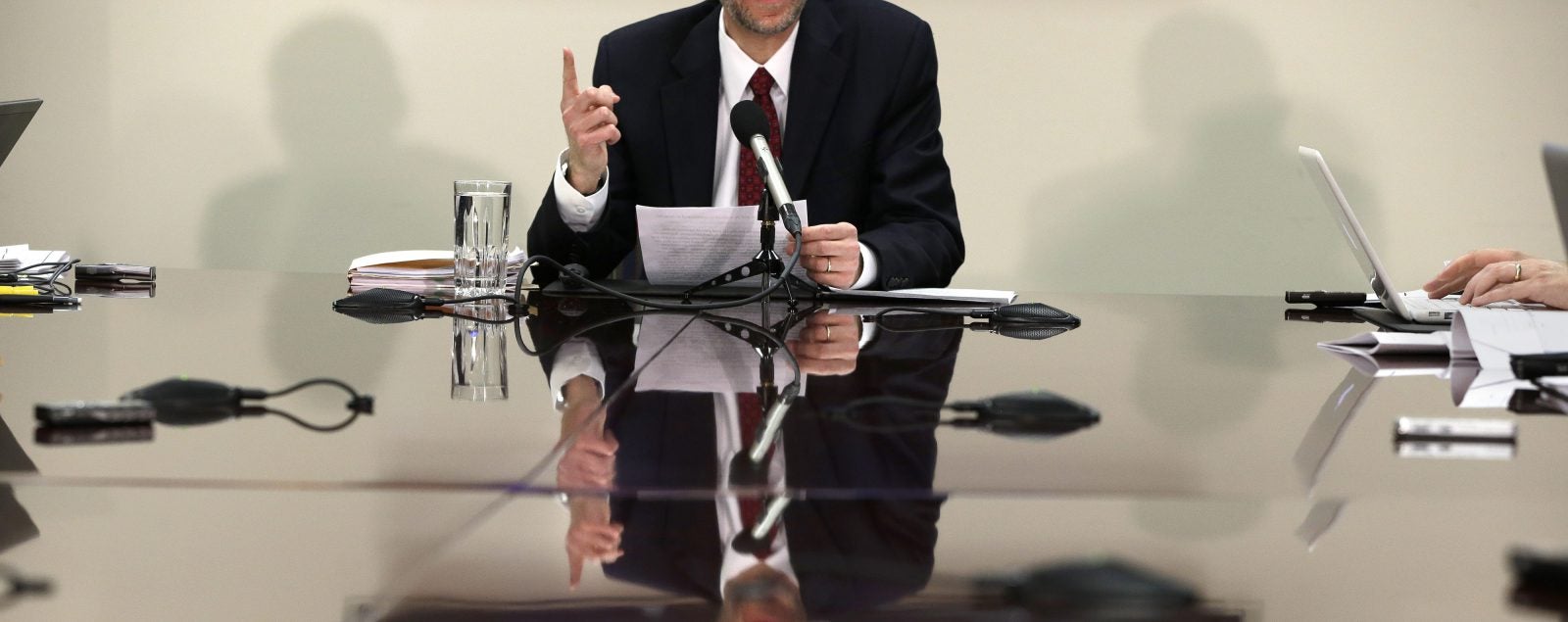The damning big-picture consequences of making crude jokes at work
Maybe he makes the comment as you’re filing out of the meeting room, or over chitchat in the coffee area.


Maybe he makes the comment as you’re filing out of the meeting room, or over chitchat in the coffee area.
“Yeesh, must be that time of the month,” he says. Or: ”She should wear that dress more often, damn.”
You laugh nervously, or roll your eyes. It’s clear you’re uncomfortable. Then, like clockwork, he starts to rationalize: ”Relax, it was just a joke.”
For the vast majority of American workers, this kind of exchange is all too familiar. But a new poll shows that crude jokes are far from harmless. If a man is making sexist jokes, he’s more likely to be engaging in other forms of harassment, too.
In collaboration with the polling and media company Morning Consult and leading sexual harassment researchers, The New York Times surveyed a nationally representative sample of 615 men who work full time in the US about how they conduct themselves at work.
Mixed in with benign questions about using Facebook at work or commuting by bike were a series of questions about behavior that would qualify as gender-based bias or sexual harassment. Respondents were promised confidentiality so to ensure their responses were as accurate as possible.
Of the men surveyed, nearly one-third said they had done something at work within the past year that would qualify as objectionable behavior or sexual harassment. The most common type of objectionable behavior—which 25% of men said they had done within the past year—was gender harassment, which includes telling crude jokes or stories, or sharing inappropriate videos. Almost one-fifth of the men surveyed said they had told crude jokes or stories at work within the past year. As leading sexual harassment researcher Louise Fitzgerald tells the Times, “Even milder forms of harassment can be extremely damaging if they happen frequently and continue over time.”
In part, that’s because mild forms of harassment do not exist in a vacuum. In the Times survey, men who admitted to telling sexual stories or jokes were about five times more likely to report engaging in other harassing behaviors, too. Moreover, each individual joke adds up over time, creating a work environment where men believe they’re entitled to degrade others and express lewdness without fear of consequence. In other words, when men tell sexist jokes at work, other men are significantly more likely to do the same.
“We find that they won’t do that when there is a presence of a role model who models professional behavior,” John Pryor, an emeritus distinguished psychology professor at Illinois State University who researches workplace harassment, told the Times. “Social norms come into play.”
To those who insist that a joke is just a joke, the impact of lewd comments on workplace culture might seem irrelevant. But the bigger point is that this: A single sexist joke itself does not do major damage to women. We’re not that delicate, and we usually pity such mindless humor.
What hurts women is the reality that any reaction women have to sexist jokes—whether positive or negative—runs the risk of damaging their reputations in the eyes of their colleagues, especially the men who likely control their paychecks and promotions. Feminist writer Rebecca Traister recently explained this double-bind on an episode of NPR’s “Fresh Air,” discussing her response to a friend who’d argued that a dirty joke in the office isn’t really that bad:
“The thing that I keep wanting to stress is that if a guy tells a joke a dirty joke or an offensive joke at a staff meeting, the harm done to a woman who is in that staff meeting, for instance, is not in the joke itself. It’s that her reaction to the joke, her response to it can then contribute to her professional future. Is she going to be like less by her colleagues and her bosses? Is she going to be viewed as a threat because she doesn’t play along? The harm isn’t in the initial offense, the harm is in the accumulated energy that women have to spend navigating this stuff through so many stages of their career.”
Traister also notes that it’s essential that the #MeToo movement focus on not just individual offenses, but on “the bigger picture that is being revealed—which is the large structural, systemic realities of how women’s professional realities are lived, versus how men’s professional realities have been lived.”
So, sure, maybe a crude comment at work is “just a joke.” But this short-sighted interpretation willfully ignores the cumulative effect that those jokes can have on women’s lives and careers. And it proliferates workplace cultures in which women are demeaned and devalued, emboldening men like Harvey Weinstein, Matt Lauer, and Louis CK.